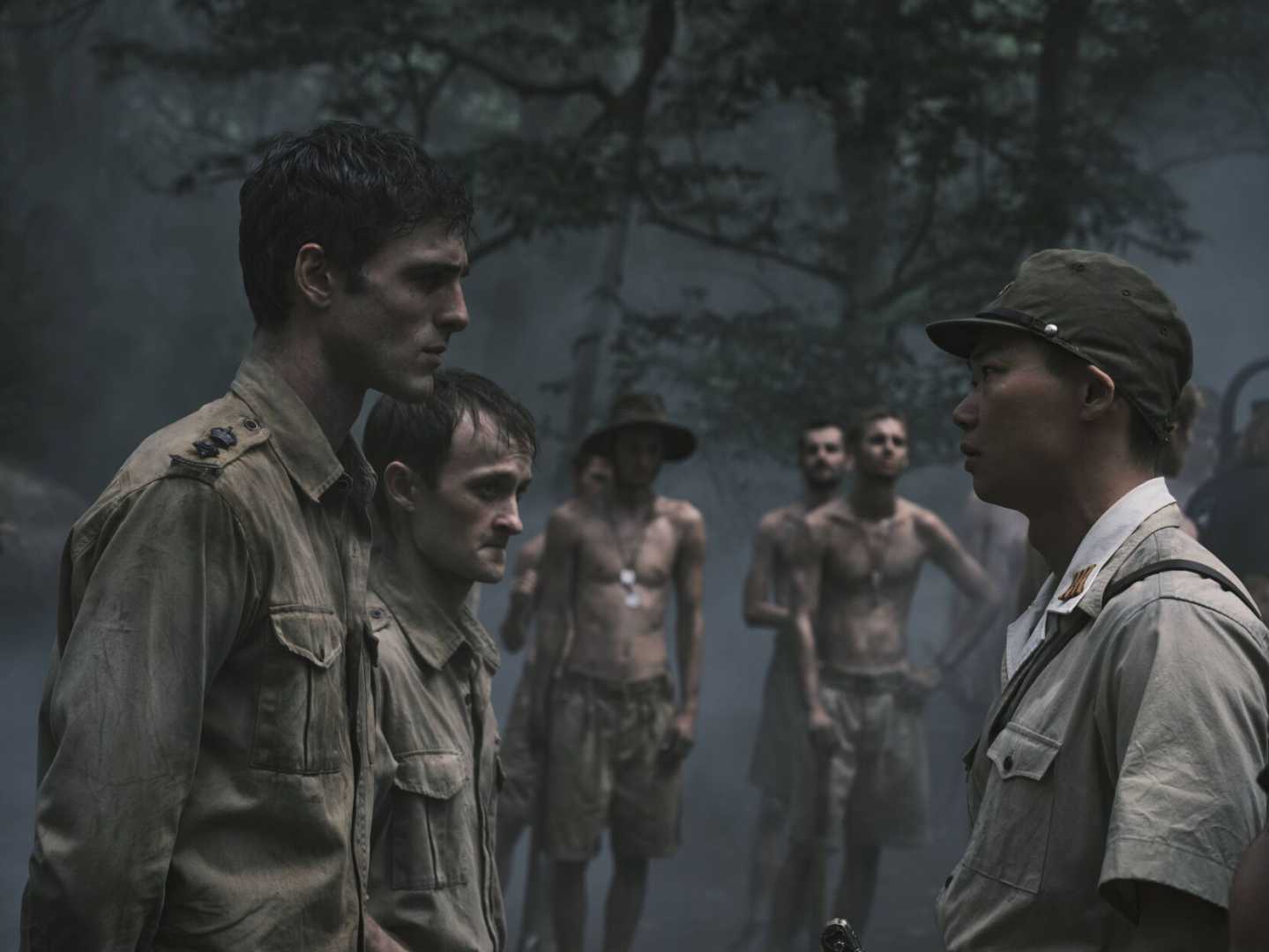Entertainment
Justin Kurzel’s ‘The Narrow Road’ Explores War’s Deep Traumas

Sydney, Australia – Director Justin Kurzel‘s adaptation of Richard Flanagan’s novel, “The Narrow Road to the Deep North,” takes a contemplative approach toward the traumatic impacts of war, diverging from traditional battleground narratives. Premiering on Prime Video, the five-part series delves into the psychological ramifications of the Thai-Burma railway, showcasing the profound moral complexities faced by its characters.
Unlike many war-themed productions that focus on spectacle and adventure, “The Narrow Road” strips away glamor to peer into the true horrors of conflict. It follows Australian medical student Dorrigo Evans, portrayed by Jacob Elordi and later by Ciarán Hinds, as he grapples with the brutalities of being a prisoner of war.
The storyline unfolds across three timelines: before, during, and after the war. In the present-day segments, Hinds captures Dorrigo’s evolution into a world-weary surgeon questioning his past actions, including controversial comments about the Japanese during wartime. In one scene, he faces a journalist who challenges his description of Japanese soldiers as ‘monsters,’ referencing the devastation of Hiroshima and Nagasaki.
Kurzel’s interpretation refrains from overtly glorifying any side of the conflict, instead reflecting on how war dismantles individuals on both sides. The Japanese camp is depicted through the lens of Dorrigo’s experience, capturing moments of violence under the command of a cruel colonel, Taki Abe, while also showcasing a complex relationship with a major, played by Shô Kasamatsu.
As the series shifts between timelines, the narrative threads together Dorrigo’s struggles with morality and love. His passionate affair with Amy, played by Odessa Young, intertwines with his engagement to Ella, illustrated through nuanced performances that deepen the character’s conflict.
Elordi describes his experience preparing for the role as both physically demanding and revealing. The cast underwent a rigorous boot camp, shedding weight to reflect the horrific conditions faced by real-life prisoners. “We were all in it together, so there was this overwhelming amount of love in the whole process,” Elordi says, highlighting the camaraderie formed among the cast.
This adaptation marks a significant collaboration for Kurzel and screenwriter Shaun Grant, who have a history of navigating Australia’s traumatic history in previous works. However, this project resonates on a personal level for both, as both have familial ties to the events being portrayed—Grant’s grandfather was a survivor of the Burma-Thailand railway, and Kurzel’s grandfather fought at Tobruk.
Grant acknowledges the emotional weight of translating such histories to the screen. “It felt like I really got to know my grandfather for the first time,” he reflects, emphasizing the importance of portraying the brutal realities while maintaining sensitivity to the historical context.
The series has been noted for its realistic portrayal and psychological depth, which Kurzel suggests is crucial to understanding the complexities of Dorrigo’s character. “It’s a story told from his point of view, and that’s how we approached it—the prism of Dorrigo,” he explains.
While the series has received praise for its narrative depth, some critics have pointed out potential oversights regarding the portrayal of other laborers during the railway’s construction. Kurzel addresses this by acknowledging the complexities of depicting all perspectives while staying true to the main character’s journey.
Ultimately, “The Narrow Road to the Deep North” aims to evoke dialogue about the lasting scars of war, with Kurzel and Grant striving to present a story that transcends simplistic binaries of heroism and villainy.












